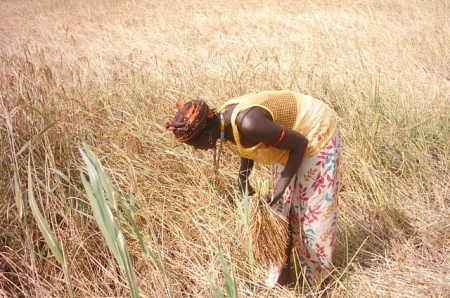Namibia: Civil society supports EPA stand
New Era | 8 July 2009
Namibia: Civil Society Supports EPA Stand
Jo-MarÉ Duddy

CIVIL society is rallying behind Government in its decision to take on the European Commission (EC), lobbying for support not to sign the interim economic partnership agreement (EPA) until the EC puts agreed trade concessions on infant industry protection, food security, export taxes and free goods flow in writing.
Nangof, the umbrella network for non-governmental organisations (NGOs) in Namibia, is canvassing signatures for a strongly worded joint statement on the EPA, in which they voice their concern on major unresolved issues, as well as the threat to the Southern African Customs Union (Sacu) now that Lesotho, Botswana and Swaziland have signed the interim EPA.
They will present the signed statement to Trade and Industry Minister Hage Geingob and Elizabeth Pape, Head of the EC delegation in Namibia, Herbert Jauch of the Labour Research and Resource Institute (LaRRI), Nangof told The Namibian.
The campaign follows the visit of an EC team to Namibia last week to evaluate the European Union’s (EU) strategy in the country.
During this visit, EC Information and Communication Officer Fabio Fabbi told Nampa that Namibia is welcome to either sign the interim EPA or opt for the EU’s Generalised System of Preference (GSP). The latter is a trade agreement which will grant Namibia preferential access to EU markets at reduced tariffs.
However, should Namibia choose the GSP route, there will be no further negotiations, Fabbi said.
"We give you rules and you have to apply," Nampa quoted him.
Namibia, South Africa and Angola are the only ones in the SADC-EPA trade configuration that still haven’t agreed to the interim EPA.
Besides demanding written guarantees, Namibia refuses to budge on the Most Favoured Nation (MFN) and Definition of Parties (DoP) issues, which are widely regarded as serious threats to regional integration and South-South trade.
Currently Namibia still enjoys tariff- and quota-free access to EU markets for its beef, fish and table grapes. However, the EC has already reminded Namibia that this preferential treatment will stop unless the country signs the interim EPA.
Realising the concern of the private sector, Geingob recently assured the business community that he won’t "sell" them out.
He has repeatedly stressed Namibia’s willingness to sign the interim EPA, provided that their conditions are met and their interests adequately considered.
Namibia’s annual exports to the EU are worth nearly N$330 million.





